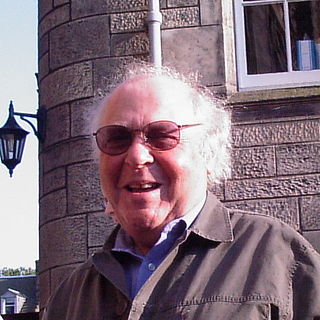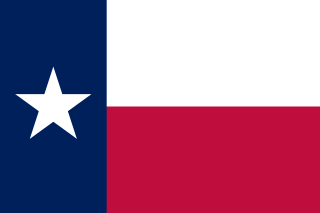
Anthropology is the scientific study of humanity, concerned with human behavior, human biology, cultures, societies, and linguistics, in both the present and past, including archaic humans. Social anthropology studies patterns of behavior, while cultural anthropology studies cultural meaning, including norms and values. The term sociocultural anthropology is commonly used today. Linguistic anthropology studies how language influences social life. Biological or physical anthropology studies the biological development of humans.

Marshall David Sahlins was an American cultural anthropologist best known for his ethnographic work in the Pacific and for his contributions to anthropological theory. He was the Charles F. Grey Distinguished Service Professor Emeritus of Anthropology and of Social Sciences at the University of Chicago.

Polish Americans are Americans who either have total or partial Polish ancestry, or are citizens of the Republic of Poland. There are an estimated 8.81 million self-identified Polish Americans, representing about 2.67% of the U.S. population, according to the 2021 American Community Survey conducted by the U.S. Census Bureau.

Lincoln Square on the North Side of Chicago, Illinois, is one of the city's 77 community areas. It encompasses the smaller neighborhoods of Ravenswood, Ravenswood Gardens, Bowmanville, Budlong Woods, as well as Lincoln Square itself.
The Congress for Cultural Freedom (CCF) was an anti-communist cultural organization founded on June 26, 1950 in West Berlin. At its height, the CCF was active in thirty-five countries. In 1966 it was revealed that the Central Intelligence Agency was instrumental in the establishment and funding of the group. The congress aimed to enlist intellectuals and opinion makers in a war of ideas against communism.

In anthropology and geography, a cultural area, cultural region, cultural sphere, or culture area refers to a geography with one relatively homogeneous human activity or complex of activities (culture). Such activities are often associated with an ethnolinguistic group and with the territory it inhabits. Specific cultures often do not limit their geographic coverage to the borders of a nation state, or to smaller subdivisions of a state.

Lithuanians in Chicago and the nearby metropolitan area are a prominent group within the "Windy City" whose presence goes back over a hundred years. Today the Chicago area possesses the largest Lithuanian community outside Lithuania, who have dubbed the city as Little Lithuania, and many Lithuanian Americans refer to it as the second capital of Lithuania. Lithuanian Americans from Chicago have had a significant impact on politics in both the United States and Lithuania. The population is currently declining.

German Fest is an ethnic festival in Milwaukee, Wisconsin, US at the Henry Maier Festival Park, on the Lake Michigan lakefront. The genesis of German Fest occurred when Mayor Henry Maier challenged the local German-American community during a speech on May 20, 1980, at the 20th anniversary of the German American National Congress (DANK) to organize a German festival. Shortly thereafter, Walter Geissler, then President of D.A.N.K., chaired a committee of five members that laid the foundation for the Fest. The charter of German Fest was subsequently written in January 1981. The first German Fest was held in August 1981. It is billed as the "Largest German celebration in North America" and "A Milwaukee Tradition". It currently occurs during the last full weekend in July. As of 1993, 52% of Milwaukee's population claimed German descent, which is the largest European percentage in a major U.S. metropolitan area.

Texas Germans are descendants of Germans who settled in Texas since the 1830s. The arriving Germans tended to cluster in ethnic enclaves; the majority settled in a broad, fragmented belt across the south-central part of the state, where many became farmers. As of 1990, about three million Texans considered themselves German in ancestry.

Culture is a concept that encompasses the social behavior, institutions, and norms found in human societies, as well as the knowledge, beliefs, arts, laws, customs, capabilities, and habits of the individuals in these groups. Culture is often originated from or attributed to a specific region or location.

Haus Publishing is a London-based publishing company which was established in 2002.
The German American National Congress is a national German-American nonprofit organization in the United States founded in 1959. It was established to unite Americans of Germanic descent, while preserving their heritage and traditions. With over 30 chapters and more than 100 associated members throughout the country, DANK is the largest organization of German-Americans.
Dank or DANK may refer to:

The Davis Theater, originally known as the Pershing Theater, is a first run movie theater located in the Lincoln Square neighborhood of Chicago. Built in 1918, the theater has operated in different capacities in its history, showing silent films, German-language films, and various forms of stage performance. In 1999, the Davis was planned to be demolished to build residential condos, but the plans were cancelled in part due to a negative response from the community. It is one of the few operating neighborhood movie theaters in Chicago. Its building was listed on the National Register of Historic Places in 2016.
The American Indian Center (AIC) of Chicago is the oldest urban American Indian center in the United States. It provides social services, youth and senior programs, cultural learning, and meeting opportunities for Native American peoples. For many years, it was located Uptown and is now in the Albany Park, Chicago community area.

The Berlin Wall Monument in Chicago is an exhibit on display at the Western Brown Line CTA station. Located in the Lincoln Square, Chicago neighborhood, an historically German-American enclave, the monument contains a large segment of the Berlin Wall and a plaque describing its dedication to the city. The Berlin Wall represented one of the great political, economic, and ideological divides of the twentieth century between two major powers: the United States and the Soviet Union.
Chicago and its suburbs have a historical population of Italian Americans. As of 2000, about 500,000 in the Chicago area identified themselves as being Italian descent.
The Germania Männerchor, later the Lincoln Club and the Germania Club, was a male choral cooperative society formed by German immigrants in Chicago. The group performed vocal music, music accompanied by an orchestra, and music for social dancing, later transforming to a private social club. It was one of the most popular singing groups in Chicago.

Historically, Chicago has had an ethnic German population. As of the 2000 U.S. Census, 15.8% of people in the Chicago area had German ancestry, and those of German ancestry were the largest ethnic group in 80% of Chicago's suburbs. As of the year 1930, those of German ancestry were the largest European ethnic group in Chicago. However, as of today that number has decreased to 6%.
Greater St. Louis has a Chinese community.













